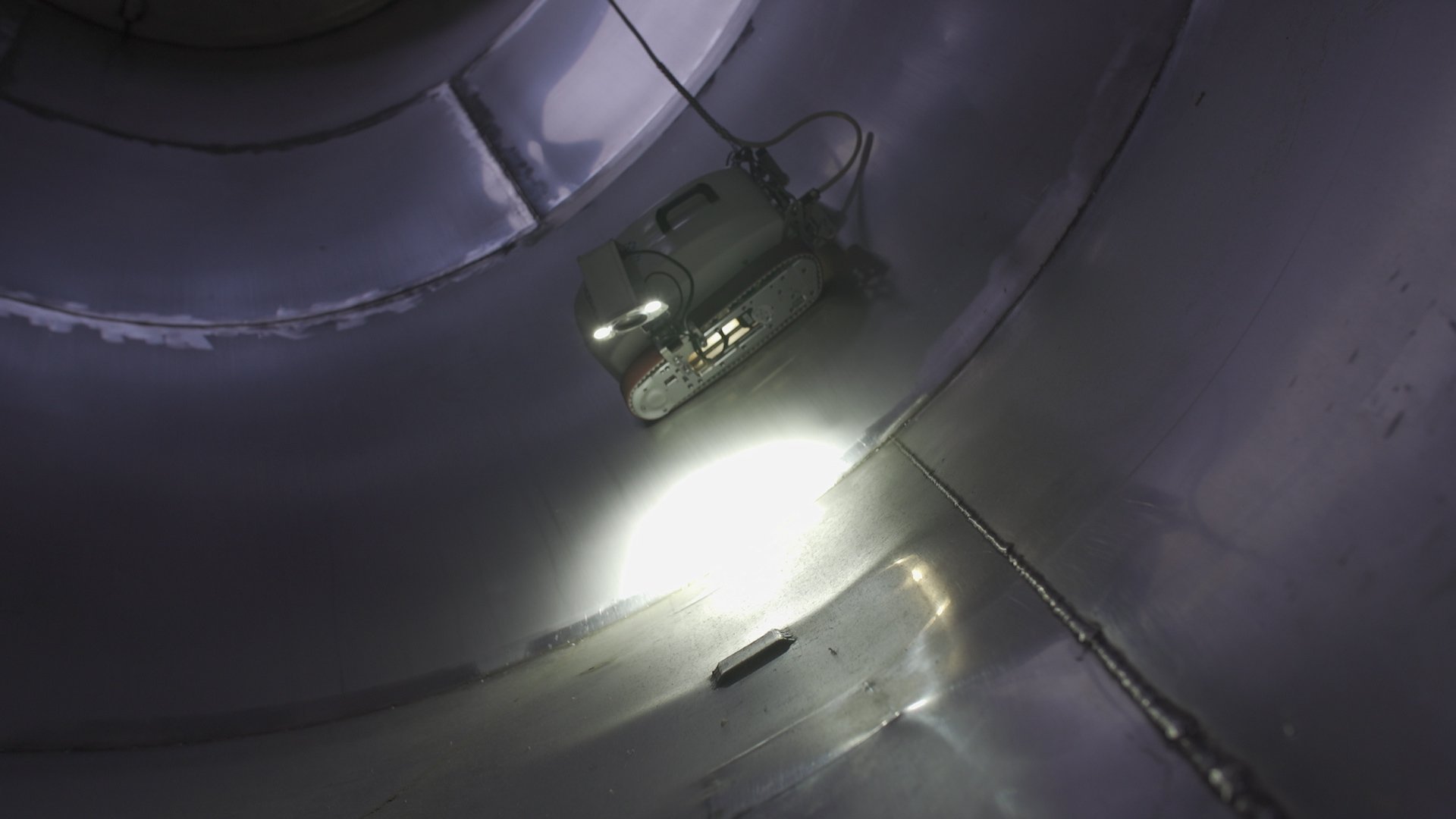Feature story
Building the chemical factories of the future
Building the chemical factories of the future
The chemical industry is in the early stages of a major transformation in the way it carries out manufacturing. This comes as a result of Industry 4.0, and Nouryon is already seeing some enormous benefits.
June 2019
Industry 4.0 is the name given to the trend of increased usage of automation and data in the manufacturing industry via advanced analytics, artificial intelligence, robotics, and the Internet of Things (IoT).
“For us, Industry 4.0 means getting the maximum value out of data available in our factories and supply chain and bringing our factories to the next level of performance,” says Marco Waas, R&D Director Industrial Chemicals at Nouryon. “For example, we can now use drones to carry out inspections in places where we don’t want people to go. We are also integrating technologies which can predict when a pump will fail and thereby ensure that we replace it at the right moment.”
The tools of Industry 4.0 can also help the company respond faster to changes in the external world, according to Waas. “With almost half of our worldwide energy usage from renewable sources, we rely increasingly on renewable energy from sources like wind. However, supply can fluctuate a lot and this is a key issue for us since we use a lot of electricity to manufacture chlorine, caustic, and hydrogen.”
To manage this Nouryon uses a proprietary technology called ‘e-flex’ at its Rotterdam site. Developed in-house, the technology allows to automatically adjust production in line with electricity supply fluctuations, turning down slightly when supply on the grid is low and ramping up slightly when there is a temporary oversupply on the grid. This is rewarded with significant savings in energy cost.
"To help us to build factories of the future, it is important to work with partners to access capabilities we don’t have within our own organization."
One way Nouryon works with others is through the company's Imagine Chemistry collaborative innovation program, in which universities, startups, and other companies are invited to help tackle key challenges faced by the business.
Waas adds: "One of this year's challenges – 'Sensing in demanding chemical environments' – aimed to identify innovative sensing solutions to help us achieve 100% resource efficiency, and some of the ideas presented to us, for example miniaturized pipeline sensors, are highly interesting."
Several ideas found through earlier editions of Imagine Chemistry are already tested and commercialized. These include Semiotic Labs, which uses machine learning and proprietary sensors to predict when and why equipment fails; and Invert Robotics, which provides safer, non-destructive inspection services using state-of-the-art mobile climbing robots.

Invert Robotics
“Industry 4.0 promises to help us to operate our factories more safely and much more efficiently by using less energy and materials. Though it is early in this journey, I believe that in 10 years’ time we will have achieved near maximum efficiency in our plants, and they will have become not only safer but also more exciting places to work.”
The above story is derived from an article by Marco Waas that appeared in the June edition of Manufacturing Technology Insight.